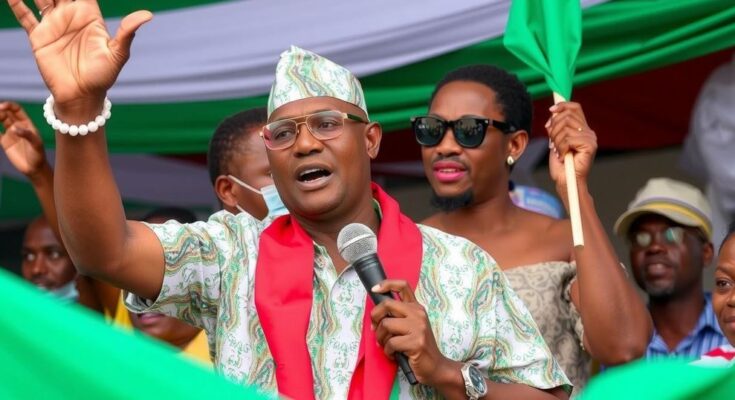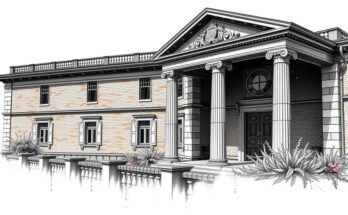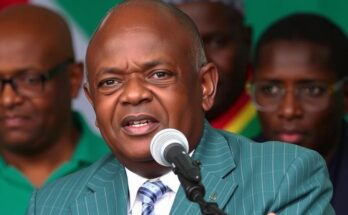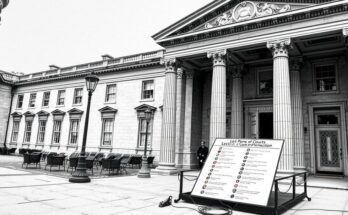Ghana’s opposition has claimed victory for John Mahama in the recent presidential election amid ongoing economic troubles, though official results are yet to be confirmed. Mahama’s lead over Vice President Mahamudu Bawumia appears solid according to preliminary tallies. The election process was generally calm despite isolated incidents of violence. Economic issues played a significant role in voters’ decisions as Ghana seeks a successor to outgoing President Nana Akufo-Addo after his two-term limit.
On Sunday, the opposition party in Ghana announced that preliminary election results indicate their candidate, John Mahama, has won the recent presidential election. This assertion comes despite the electoral authority’s ongoing process to compile and verify the official results. Over the weekend, the election was characterized by a contest between Mahama, representing the National Democratic Congress (NDC), and Mahamudu Bawumia of the New Patriotic Party (NPP), who currently serves as Vice President.
The election was primarily influenced by Ghana’s economic challenges, marked by significant debt issues, a devaluation of the currency, and rampant inflation—a situation that necessitated a $3 billion bailout from the International Monetary Fund (IMF). Voters were tasked with selecting a new president to succeed Nana Akufo-Addo, who is completing his constitutionally mandated two-term limit. Alongside the presidential election, a new parliament was also being elected.
According to NDC spokesperson Sammy Gyamfi, their internal analysis indicates Mahama achieved 56.3 percent of the votes compared to Bawumia’s 41.3 percent. “It is very clear the people of this country have voted for change,” Gyamfi asserted. Channels such as ChannelOne TV have also reported early results indicating Mahama’s lead as the counting of votes continues across the nation.
Despite a generally peaceful electoral process, there were reports of violence, with two fatalities resulting from shootings in different regions of the country. Historically, Ghana has enjoyed a stable democratic environment, with the NPP and NDC alternating power since the restoration of multi-party politics in 1992. Bawumia’s campaign aimed for an unprecedented third term for the NPP, but his efforts were hampered by the ongoing economic discontent associated with the outgoing administration. Although inflation rates have shown improvement from over 50 percent to approximately 23 percent, economic hardships remain a pressing concern for many citizens, leaving the door open for Mahama’s return to political prominence after previously unsuccessful bids for the presidency.
Ghana’s recent presidential election has sparked significant attention as the opposition party claims victory against the backdrop of economic struggles. The country, one of West Africa’s top producers of gold and cocoa, has faced a financial crisis that necessitated an IMF bailout, intensifying scrutiny over governmental economic policies. Historically, Ghana has seen peaceful transitions of power between its two primary political parties, the NPP and NDC, which have held alternating presidencies since 1992. As the nation votes for a successor to the outgoing president, economic issues stay at the forefront of voter concerns, particularly as both candidates vie for public support amid a challenging economic landscape.
In summary, the opposition’s declaration of victory in Ghana’s presidential election highlights the mounting public dissatisfaction with current economic conditions, which have significantly shaped voters’ decisions. As preliminary results suggest a lead for John Mahama over Mahamudu Bawumia, the final official results from the electoral commission are awaited. The election underscores the continued relevance of economic performance in political outcomes within Ghana’s democratic framework, particularly as the two-party system remains dominant in the political arena.
Original Source: www.barrons.com




